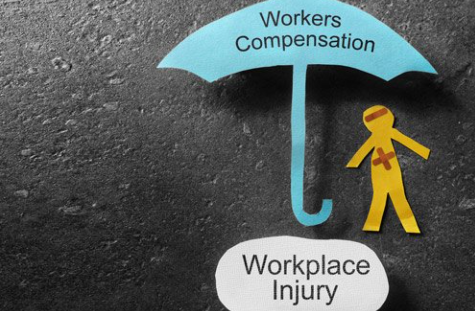AN INJURED EMPLOYEE'S GUIDE TO EMPLOYER RETALIATION
Admin • April 18, 2018

While you may be entitled to compensation following a work-related injury, filing a workers' compensation claim can expose you to adverse actions from your employer. Employers are usually reluctant to pay compensation claims and may attempt to dissuade or punish an employee for filing such a claim.
However, federal and state statutes prohibit employers from retaliating against employees who seek their rightful benefits. If you have been injured at work, here's what you need to know about employer retaliation and what you can do about it
Employer Retaliatory Behavior
In California, an employer can’t legally punish a worker for engaging in protected activities such as reporting illegal conduct, refusing to participate in illegal conduct, filing a discrimination lawsuit, filing a lawsuit on illegal workplace activities, or filing a wage claim with the Labor Commissioner.
Because you have a right to workers' compensation if you are injured at work, filing such a claim is a protected activity.
Unlawful retaliation by an employer may include firing, demoting, slashing wages and hours, passing someone over for promotion, excluding someone from certain benefits, or harassing an employee.
Note that your employer may terminate, demote, or discipline you for other reasons such as misconduct as long as your employer is not singling you out for filing a workers' compensation claim.
In addition, your employer is not legally obligated to retain your job position if you are unable to work due to an injury. Your employer may have to replace you if you will be away for months.
Proof of Retaliation
The burden of proving employer retaliation in a worker's compensation case lies with the employee. You must have adequate evidence to show that your employer's actions were due to you filing a benefits claim following a workplace injury. You have to show that your claim was the motivating factor in your employer's decision to, for example, terminate you or cut your wages.
Under California law, you do not have to prove that filing a workers' compensation claim was the primary reason for your employer's retaliation. You only need to show that your filing was a determinative factor in influencing your employer's behavior. You also need to show that other reasons given by your employer for the retaliatory actions are unworthy of belief.
For an employer retaliation claim to be admissible, you must prove these four requirements:
- You were entitled to workers' compensation benefits.
- You engaged in a protected activity (filing the claim).
- You have suffered significant employment-related consequences such as losing your job.
- The employer's actions were motivated by your protected activity.
If you can prove these four things, you will have a better chance of winning a case.
Actions to Take
If you suspect your employer is retaliating against you for filing a workers' compensation claim, speak to your supervisor about the actions. Your employer may have had legitimate reasons for taking certain actions.
If no valid reason is given, explain that you are concerned that the employer's actions are retaliatory because these actions were enforced soon after you filed a compensation claim.
In case your employer declines to resolve the problem, you may have to file a complaint with the California Department of Fair Employment and Housing (DFEH) or the federal Equal Employment Opportunity Commission (EEOC).
Gathering enough evidence such as documentation or communication pointing to the alleged retaliatory behavior can improve the chances of your case. If you have been terminated or your wages have been slashed after filing a workers' compensation claim, discuss your legal options with an attorney.
At The Law Offices of Jeffrey M. Greenberg, we can help you deal with a retaliatory employer and navigate the workers' compensation claims process so you can get what is rightfully yours. Contact us for help.
If you suffer an injury at work, you should report the injury to your employer as soon as possible. Learn why the timing is important.
Construction injuries can often be serious. Learn about three ways construction workers can reduce their chances of injury on the job.
If you are injured at work, you should be aware of work capacity after a work-related injury so you can prepare yourself. Learn more.






